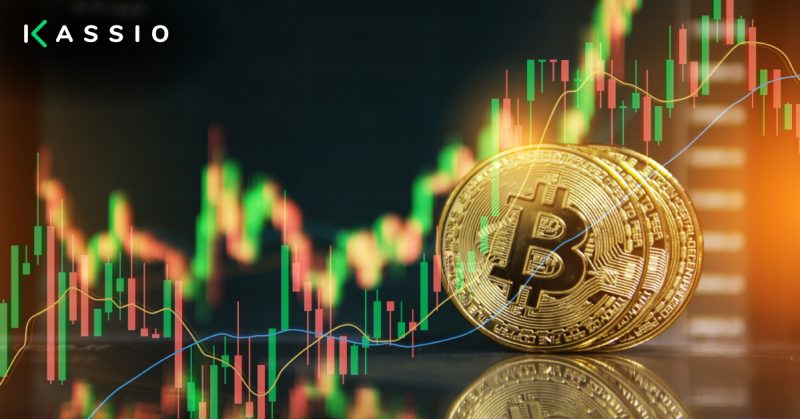Earlier institutional investors have disregarded crypto investments and refused to accept them as a store of value. Many of them referred to cryptocurrency as a worthless digital asset. But as soon as the rapid crypto adoption and rewarding nature of crypto investments gained traction globally, investment dynamics & investors’ perceptions about crypto assets changed entirely.
Institutional investors who were once reluctant to invest in crypto are now standing firm with the crypto industry and are willing to explore use cases that can effectively strengthen the emerging crypto ecosystem. Last year venture capital firms provided a record-breaking $17 billion in funding to crypto companies. As per survey conducted by Fidelity Digital Assets, 52% of Institutional investors in Europe, Asia & the U.S. have invested in crypto, and 71% of institutional investors plan to invest in crypto soon.
The journey of institutional investors from being a critic of cryptos to the most inclined group of investors has many underlying reasons. Following are a few prominent reasons for the increased engagement of institutional investors in crypto assets:
• Long Term Capital Growth Perspective:
With crypto investing, capital can grow exceptionally in the long term compared to traditional finance. Due to its strong market performance and remarkable returns, it has gained popularity among big investors & high net worth individuals. Due to its increased acceptance, institutional investors are introducing crypto assets into their clients’ portfolios.
• Support From Govt. Regulatory Bodies & Corporates:
Many renowned personalities such as Michael Saylor (Founder & CEO of Microstrategy), Elon Musk (Co-founder & CEO of Tesla), Changpeng Zhao (CEO of Binance), Jack Dorsey (Former CEO of Twitter), Nayib Bukele (President of El Salvador), etc., have endorsed cryptocurrency. Apart from successful people, support from big corporations like Microsoft, Tesla, Starbucks, Microstrategy, etc., has helped the crypto industry gain trust of Institutional investors. It has also gained increased support from various govt & regulatory bodies worldwide. El Salvador has declared cryptocurrencies legal tender, whereas there are ongoing discussions on bringing crypto under regulations globally. Many govt & central banks around the globe are evaluating the idea of launching their digital currency.
• Hedge Against Inflationary Factors:
Due to the virtue of decentralization, cryptocurrencies are independent of any centralized controlling authority & their regulations. It contains almost every asset class; therefore, its property of being a robust asset class attracts big investors. By investing in stable coins, investors can easily protect against inflation. Stable coin investments provide a hedge against inflation. Few Institutional investors find crypto an excellent alternative to digital gold.
• No Correlation With Other Assets:
Crypto assets are not correlated with any other asset classes, i.e., their market price will not get affected by fluctuations in the price of other assets. Due to being a non-correlated asset, it provides a comparatively more sense of security as the downfall of other traditional assets will not affect the crypto industry. Being an independent & non-correlated asset class, cryptocurrencies emerged as a lucrative option for institutional investors & HNIs.
• Innovative Technology With High Growth Potential:
Another positive aspect of investing in crypto-assets is the underlying innovative technology and faster adoption. As per the survey conducted by Chainalysis, the global crypto adoption rate has increased 880% in the last 12 months. The ongoing crypto-financial revolution and its popularity made crypto assets a lucrative option for institutional investors.
• Survived Pandemic Led Market Turmoil of 2020:
The crypto industry has gained investors’ confidence by withstanding the tough times of market turmoil of 2020 during the pandemic. There were diverse economic sanctions imposed worldwide, which caused an economic slowdown globally. When almost every sector witnessed a downfall, the crypto-industry remained unaffected by the ongoing crisis.
• Greater Participation of Financial Experts:
In the initial phase of the crypto industry, investors were focused on making money by just holding crypto assets for a long time. They lacked a fundamental understanding of quantitative investing & risk management, etc. Moving forward to the present, we are observing that more and more portfolio managers, analysts belonging to the traditional finance landscape are participating in the crypto industry. The greater participation of financial experts in the crypto industry has also resulted in greater faith & inclination of institutional investors & HNIs towards the crypto industry.
The crypto industry has proved its’ worth to institutional investors over time. The gradual increase in institutional investors also indicates the restored faith & confidence in the crypto assets. The pace of global adoption & popularity of crypto investments among investors projects an optimistic future for the crypto industry.






